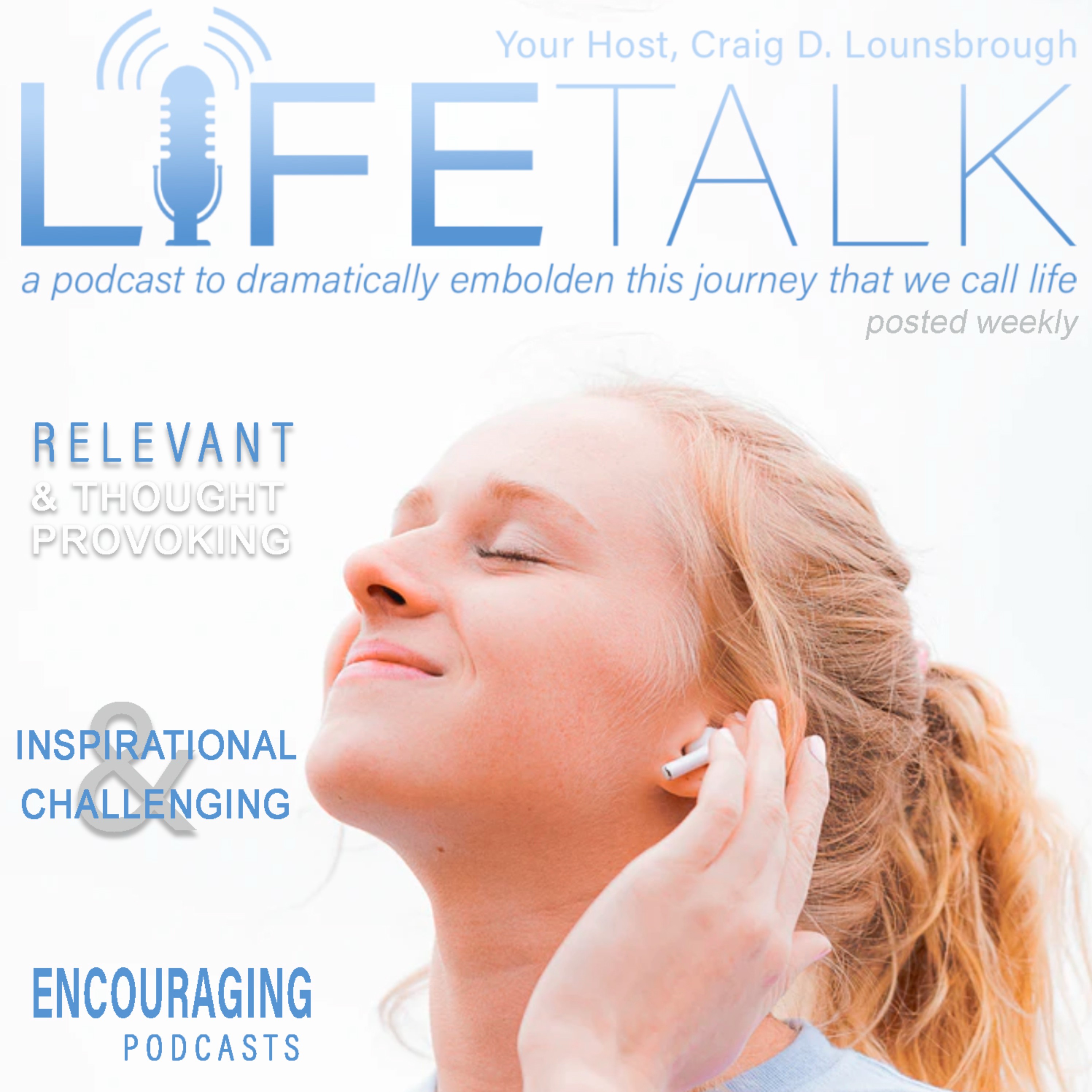
21K
Downloads
273
Episodes
Life Talk is a podcast intentionally designed to enrich your life, deepen your marriage, enhance your parenting, maximize your work life, and dramatically embolden this journey that we call life.
Life Talk is a podcast intentionally designed to enrich your life, deepen your marriage, enhance your parenting, maximize your work life, and dramatically embolden this journey that we call life.
Episodes

Wednesday Feb 17, 2021
Success - Defining It Defines Us
Wednesday Feb 17, 2021
Wednesday Feb 17, 2021
It would be pretty safe to say that all of us want to be successful. We’re not stagnant creatures just milling about and burning time until we drop dead. There’s something more intentional about us; something that responds to challenges and has a natural inclination to set goals, whether we actually achieve them or not. We have a need to have a purpose; something that defines us as more than carbon-based life forms going through a series of meaningless motions on our way to the grave. We have a need to achieve, to conquer, to rise to great heights and soar. It seems that being alive is not enough to justify our existence or lend value to that existence. Rather, we have to make our mark and leave a timeless legacy that shouts that we were more than simply people who lived out our days.
This need to justify our existence naturally and most predominantly results in the need to succeed in some way. To do that, we have to define success. How do we know if we’ve succeeded? What will give us a sense that we’ve accomplished something? How will we determine how far we’ve come or how far we’ve yet to go? Did we do it right or did we do it wrong? To answer those questions we’ve got to define what success is. Otherwise we have no yardstick that we can use in order to determine our progress or lack thereof.
How We Define Success
The problem for most of us is not in succeeding. The real issue is in how we define “success.” Whatever that definition is, it’s extremely powerful. Our definition of success, whatever that might be, has power beyond our recognition and it has implications for us that in large part never even dawn on us. How we define success will define what we do and how we do it. Our definition of success will quite literally direct the whole of our energies.
Whatever our definition of success, it will be the thing that drives us, that determines where our energies are invested, how our resources are expended, what risks we will take, exactly what we’re going to be willing to sacrifice, and the degree to which we’ve achieved or failed. Our definition of success becomes the yardstick by which we measure both what we do, and ultimately what we’re worth. It can become the idol at whose feet we bow and to which the whole of our lives and our energies are sacrificially expended. It becomes the focal point of what we do. Therefore, our definition of success becomes terribly critical.
Our Definition Defines Our Value
Our definition of success is driven by whatever our ultimate goal is. There are tons of goals that we could sort through and sift through and discuss and evaluate and weigh out. However, at the core of each goal there’s typically one central goal that defines all other goals. That fundamental goal is to have a sense that our lives have “value.” Whatever our goals are and whatever they look like, it’s likely that their main objective and their core purpose is to convince ourselves that we have value. It’s entirely imperative that we see ourselves as having value as value justifies our existence and validates that we’re worthy of the space that we’re taking up. Having a sense of value is core to our humanity because without it we feel empty, hollow, entirely lost and totally unworthy. Value is indispensable.
The way that we convince ourselves that we have value is by convincing others that we have value. It’s a kind of a self- inflicted ‘sales job’ where we get others to believe that we have value which in turn convinces us that we have value because until others see it in us, we can’t possibly believe we have it. Because that’s frequently the case, as sad as that might be, our definition of success is built on and around doing something that others will look at in awe, or reverence, or be driven to emulate, or hold in high esteem, or find praiseworthy because it’s all so grand and mesmerizing. Once others grant it value, we grant it value. When we ever that is, has to incessantly generate outcomes that people will value so that we can stuff ourselves full of that “stuff” sufficiently enough in order feel that we have value.
A Better Definition – What It Is and What It Isn’t
A definition of success is not so much about success as it is standards. It’s not about accolades as much as it’s about authenticity. It’s not about strategy, it’s about sanctity. It’s not about where one wants to go, it’s about living well right where we are. It’s not about what one does but who one is. Success is based on how we chose to live which dictates what we choose to do; not the other way around. Success is the maintenance of virtue and the life-long refining of a right heart when the world around us sees no value in either or anything else admirable for that matter. Success is a commitment to an unwavering morality for the sole purpose of morality and not for any applause that such a stance might obtain for us.
As Elbert Einstein put it, “Try not to become a man of success, but rather try to become a man of value.” Success is living well and dying with that legacy left in our wake. It’s not about how many people witnessed our living well or how many can attest to it at the end. It’s simply that we were those things whether they were displayed in front of masses of people or lived out in the greater testing ground of total isolation where no one sees but us and God.Success is a life well lived regardless of how many trophies or certificates or promotions or contracts we got in the process of living. The marks of real success can’t be hung on a wall, or deposited in a bank account, or used as leverage to advance a career. Those things are more the stuff of achievement, which are good, but they’re not necessarily “success.”
It’s not that achieving things or diligently working for those kinds of things is bad. They’re not. It’s simply that they’re not the hallmark of the kind of success that shapes lives; that transforms people, that rocks cultures, that calls others to higher ground and boldly exhibits something that’s far beyond the tiny confines of our human existence and something more of the character and essence of the God who created us. Success is right living, exuberantly virtuous living, mindful living, and selfless living that combine to result in a bold living that can be stunning. It’s all lived out without wondering how many brownie points we’re going to amass by living that way and how good it’s all going to look to everyone around us. It’s just living with brazen integrity for the sake of living that way and nothing more. That’s success.
An Adjustment
Our culture ties success to achievement as defined as worthy and worthwhile in and by our culture. Yet, real success is a life well lived regardless of the achievements or lack thereof that might be a part of that kind of living. Live right. Live well. Live with integrity. Be guided by a strong morality. Be a stand-up person in a world that’s too often standing-down. That’s success. That’s worth living for and dying in. Re-define success for yourself and live it.

Sunday Feb 14, 2021
Hope Deferred
Sunday Feb 14, 2021
Sunday Feb 14, 2021
Hope is often deferred. Today we see hope not only as deferred, but often as vanishing. We had hope in a career, or in a marriage, or in a friendship, or in some dream that we had dreamt for years. We had hope that certain promises would make the world better, or change the course of a life, a family, a community, or a nation. We had hope that tomorrow would be better and that yesterday would be forgotten. We had hope that our kids would grow up healthy, that the medical issues would be resolves, or the debt would be overcome. But too often, hope is deferred. Yet, hope in God is never deferred because God is hope.

Sunday Feb 07, 2021
Digging Our Own Holes - Getting Rid of the Shovels
Sunday Feb 07, 2021
Sunday Feb 07, 2021
We dig holes. Lots of them. With all kinds of shovels. But the interesting thing is that we dig most of these holes without even recognizing that we’re digging holes right in the middle of digging them. We dig a lot of holes and we have all kinds of shovels to dig them with. We dig these holes through the decisions that we make, or the people that we tend to spend our time with, or the activities that we engage in, or the lifestyle choices that we’ve made, or the way that we spend our money, or the belief systems that we adhere to, or the habits that we develop, or the choices that we make to advance our careers, or the people that we marry and the people that we don’t. We dig all kinds of holes with all kinds of shovels.
And maybe what we should do with our lives is stop digging holes. And maybe we should stop all the digging by being thoughtful about what we’re doing. Maybe we should stop the digging by refusing to be reactive. By rejecting greedy impulses and refusing to get caught up in those impulses. By starting to ask who we’re listening to and why. Maybe we need to stop digging holes by asking where our ethics went, or who we’re hanging around with, or what habits we need to seriously consider getting rid of, or what principles we’ve left behind us that maybe we need to put in front of us, or the incessant denial that we live in and all of the rationalizes that we create to justify that denial. Maybe we need to stop all the digging.
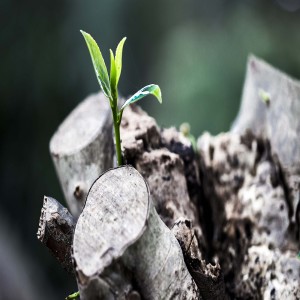
Wednesday Feb 03, 2021
A New Life - Starting Again
Wednesday Feb 03, 2021
Wednesday Feb 03, 2021
Ever feel dead? I mean the kind of dead where life’s lost its vitality, its meaning and every bit of its luster? The kind of dead that leaves you feeling entirely numb and completely hopeless all at the same time; being stranded in this limp kind of limbo where you’re alive but you don’t feel like it at all? Ever feel like there’s absolutely no purpose, no direction from here to someplace other than here, no value whatsoever, no redeeming quality anywhere, and no ladder to get you out of the bottomless hole you’re in? Ever feel dead?
Here’s a curious bit of information that’s quite striking. Archaeological excavations unearthed wheat seeds in pyramids dating back to 2500 B.C. That makes these ancient seeds somewhere around 4500 years old, give or take a century. In order to determine the types of grains used in the ancient world, archeologists planted them to see what would happen. They grew! Somehow, the spark of life hung in there for four and a half millennia. What should have been long dead was very much alive. What should have been snuffed out was not. What should have been entirely hopeless wasn’t. Think about it.
It’s that time of year when things become new. Spring and Easter are reminders of that which was terribly dead being made impossibly alive. There’s something of a restorative quality about this time of year, where something whispers wild rumors of new beginnings arising from the seemingly dead seeds in our lives. There’s something almost cruel about it all, as if there might be some sort of truth about a new life actually being possible. Maybe it is true.
Starting Over
How many times have we wished that we could just start over? Would it be better to be dead and start over all new and fresh? Sometimes it seems that it would be a whole lot easier to simply wipe the slate clean of whatever life has been. There’s nothing like a fresh start, a clean break, a new day, a mulligan or a do over.
However, life doesn’t grant us those options. History is history. It’s carved in granite in some sort of indelible script on the pavers that mark the road of our lives. We can heal from it, learn from it, grow because of it, forgive what we did to others and forgive what was done to us. We can let it haunt us, dog us, diminish us and destroy us if we let it, but we can’t change it. It’s resource or demon. It’s something that can be an asset or liability; a gift that blesses us or ghost that haunts us depending on how we use it, but it’s there for good.
So, we’re stuck with our pasts. Is life then about starting again, or is it about taking the resources of our past and using them to start over again? Do we really want a fresh start, beginning with nothing in an attempt to build something? Or would we be wiser to take whatever we have, whether it‘s perfect or painful and start from there? Would it be wiser, possibly much wiser to plant that which seems dead and see what happens?
Starting Over is Not Starting Fresh
Starting over is an acceptance of a past we can’t change, an unrelenting conviction that the future can be different, and the stubborn wisdom to use the past to make the future what the past was not. New starts are best built on the difficulties, failures and pain of the past. It’s not about wiping the slate clean. It’s about diligently studying what’s written there, learning from it, discerning its messages, drawing from it and applying what’s there. Life from death in a resurrecting cycle where what kills us is turned in on itself to build us.
Starting over is taking what life has dealt us and learning to see it as a resource when all we see is ruin. In the oddity or maybe the miracle of life, the roots of something new frequently lie in the decaying husks of something old. We just don’t see it that way. We discard the old because we assume old equates with dead and useless. Nothing could be further from the truth.
Starting Over by Believing that You Can
The seed in you is not dead. Sometimes we don’t start over because all seems dead anyway. There’s no life left so what’s the sense. It’s all lain barren for so long that nothing could possibly hold any spark of life. Whatever’s in us seems parched, dusty and long ago abandoned to the sands of time and hands of fate. Life however is teeming with vitality and is likewise terribly tenacious; holding on against impossible odds in impossible situations over impossible lengths of time. There are seeds within us that seem long dead that are in reality very much alive. New beginnings lay in dead husks.
Starting Over by Looking Back
So what are the lessons back there that lay strewn among the ashes and carnage? We would rather not pick through that stuff if we had our druthers. It’s ugly. It’s often painful. And sometimes there’s a stench back there that reeks of abuse, abandonment, betrayal and loss. So we’ve buried it . . . a long time ago. Why unearth it? We unearth it because seeds for growth are sown in fields of pain. What seems dead is very often alive.
Start Over by Reinvesting Your Life
Try again. Give life another shot. Do it differently maybe, but go at it again. Believe that things in life spend infinitely more energy trying to live than working to die. Life is about living. Look around you as spring moves across the landscape. Life fights back. It’s designed to overcome. It’s intentional about living with intention. It takes seeds that seem dead and from them, life brings forth life. How about you? Ever feel dead? How about believing in a new day, giving life another shot and watching what happens. The seeds are ready.

Sunday Jan 31, 2021
When We Don't Care Anymore
Sunday Jan 31, 2021
Sunday Jan 31, 2021
Too often we don’t care, or that’s what we tell ourselves. We work really hard not to care because we’ve figured out that caring is just too risky, in whatever way it happens to be too risky for us. We get the idea in our head that ‘not’ caring is just easier, because we don’t care. Or it’s safer, because we don’t care. We’re not in a position to get hurt, because we don’t care. If things don’t go our way it doesn’t matter, because we don’t care. If something or someone fails us, there’s no loss to us because we don’t care. And this whole mindset of not caring is not about not caring at all. It’s about protecting ourselves from the pain that we fear we’ll experience if we do care.
And in all that retreating, maybe there’s a stance that we should have taken, or some action that we should have engaged in, or some decision that we should have stood in opposition to or in support of. But we don’t. We don’t. Instead, we retreat. And we retreat because we’ve worked real hard to convince ourselves that we don’t care, and we’ve done that so that we won’t get hurt. And therefore, the battle that maybe should have been ours, or the battle that we should have contributed to, or the battle that was critical for us or someone else is fought without us being in it. Or worse yet, maybe it never got fought at all because we didn’t show up to fight it. And the loss that we incur, however we incurred it, is likely to cause a level of pain far, far greater than the pain that we were working to avoid feeling in the first place.
And in the end, there’s a good chance that we’ll end up caring that we didn’t care. And because we end up caring that we didn’t care, we’ll create a battle in the last place that we ever want to fight one…and that’s within ourselves.
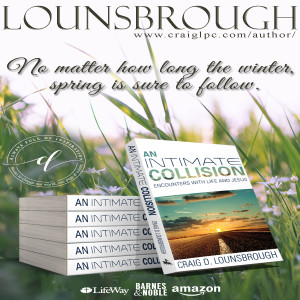
Sunday Jan 17, 2021
An Intimate Collision
Sunday Jan 17, 2021
Sunday Jan 17, 2021
How have we come to the point where the message of the Gospel is largely considered irrelevant in 21st century America? How is it that God is outmoded, outdated, antiquated, and has nothing of value to say to us as we live out our lives today? How is it that the God Who created ‘all of this’ has been left behind by the very thing that He created? How have we come to this point?
But maybe the question is not “how,” but “why.” Why have we come to this point? Why have we come to visualize God as some ancient artifact that might have worked for less educated people living out their lives in some primitive society hundreds, if not thousands of years ago? Why have we relegated Him to a period of time long gone, and in doing so completely failed to recognize that times might change, but people don’t? Why have we come to see God as entirely outmoded in light of our progressive philosophies, or our ever-shifting ethics, or our new morality?
God is most relevant thing in existence. His principles apply to our world today probably more than any time in human history. He alone holds the truths, the ideals, the values, and the principles that can assist us in navigating the profound challenges of our times and our lives. The principles handed down to us in the Bible are entirely sound, uncompromisingly relevant, timely in ways that are mind-boggling, and sufficiently powerful to assist us in navigating the descending darkness of the times that we live in. God and His principles are the most relevant thing that I can think of.
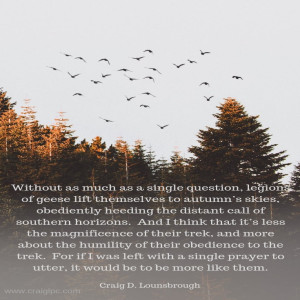
Sunday Nov 08, 2020
Change - The Seasons of Life
Sunday Nov 08, 2020
Sunday Nov 08, 2020
Life is never static, therefore it's always changing. Life never settles into some place where it's going to ride out its time for all of time. Life is always building, and in the building sometimes it adds things and at other times it takes them away. There are times where advances move us forward, but where reversals also move us forward despite our frequent inability to understand that reality. Sometimes life changes in ways we like, and at other times it changes in ways that are less than favorable.
Whatever the case might be, life changes and we are part of life. Therefore, we are both built for and maximized by change. As part of that journey, we need to focus on the unseen opportunities in change rather than fight it out of our fear of it. We need to see something closing as something else opening. We need to let the past be the preparation for the future, not the place that is our future. The season is moving forward, and if we move with it we will move to places both great and glorious.
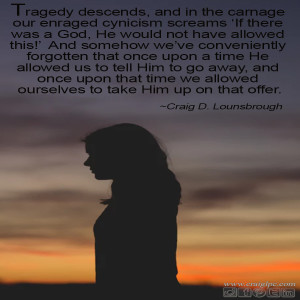
Sunday Nov 01, 2020
Pain to Paralysis - Coming Apart at the Seams
Sunday Nov 01, 2020
Sunday Nov 01, 2020
There’s pain, and then there’s intensely deep pain. We all have pain. We all have the pain of failed experiences,sordid disappointments, wasted opportunities and wasted investments that we thought were opportunities. There’s the pain of not being where we imagined being, of being forced to embrace dreams as more fantasy than substance, of friends in flight and fortitude forgotten. There’s the pain of growing up and growing jaded, a world devolving despite relentless efforts to reverse it all, of diminished confidence in our fellowman and a diminished confidence when the fellowman is us.
Then there the ‘core of your soul ’kind of pain that’s entirely different. It’s the kind of pain that’s rarely sharp but indisputably debilitating. It's profoundly aching to a paralyzing numbness with a venomous bite that’s emotionally heart-stopping. It’s exceedingly more than painful, it kills; not a straight-up obvious kind of death, but more the killing of the soul that leaves us alive while simultaneously dead. It’s a pain that flaunts healing, that defies a cure and that leaves a forever ‘limp’ in our souls. How do we deal with that kind of pain? How do we survive it? Join us for a few thoughts that might help you begin the process of moving past that kind of pain.
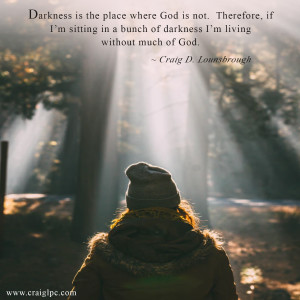
Sunday Oct 25, 2020
Playing With the Dark - Careless in the Shadows
Sunday Oct 25, 2020
Sunday Oct 25, 2020
Halloween is one of those things that captivates many people. It’s been granted status as a holiday and because it has, what it is and what it symbolizes has been granted some sort of legitimacy. Halloween and what it embodies has been given some stamp of approval because we’ve stamped it onto the calendar. And so we feel we’ve been granted some element of permission to cross some lines and play with darkness because we’ve got this holiday on the calendar that says we can.
As with anything else, we need to think about what we’re doing when we’re deciding to cross a line, whatever that line might be. What is our reason? What is our purpose? If we’re out to raise our lives to the next level or advance others, our reasons likely have legitimacy. But if we’re crossing the line just to say we’ve crossed the line, or we’re doing so out of some captivation with whatever it is that’s captured our fancy, or dabble in something that we feel that’s forbidden, then we’re likely to become captive to those very things and ultimately consumed by them. Therefore, we'd be wise to consider what we're playing with and how it's going to end up playing us.
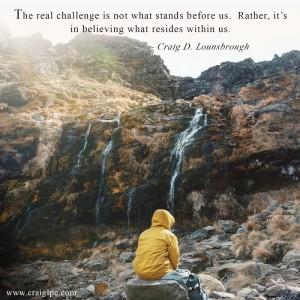
Sunday Oct 04, 2020
Discouragement - Courage, Determination and Persistence
Sunday Oct 04, 2020
Sunday Oct 04, 2020
Discouragement. It's no stranger to any of us. Whether it's from a goal that we can't reach, a marriage that we can't make work, personal issues that we can't solve, or friendships that we can't mend...we all become discouraged. Sometimes our discouragement is based on the size of the challenge that we face or the fact that the issue keeps raising its ugly head regardless of our many attempts to bury it forever. Sometimes it's our own fatigue or the exhaustion that we feel in all of our failed attempts to finally get to where we want to go.
Discouragement can be completely debilitating. It can cause us to believe that there's no hope, no solution, no way out or no way in. Yet, because we're discouraged does not mean that the battle is lost. It simply means that we might have to change our approach, alter our tactics, determine if we're fighting the right battle in the right way, and reengage in a better way. In essence, we've got to develop courage, determination and persistence. Because if we can develop and strengthen these traits and then utilize them with wisdom, we've got a good shot at beating what's been beating us.
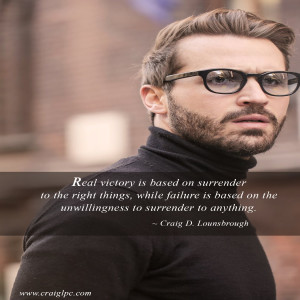
Sunday Jul 26, 2020
Historical Revisionism
Sunday Jul 26, 2020
Sunday Jul 26, 2020
History is the story of millions who lived out lives that are now held in this great vault called 'history.' It is their legacy. It is the declaration of the fact that they lived and it is a careful summation of what they did with their lives. History is also the thing that instructs millions of us today. It is the thing that shows us how to avoid the devastation experienced by those who went before us and how to repeat the successes that were theirs as well. As such, history is powerful, history is immense, and history is sacred.
Yet, if it does not align with our agenda or if it opposes it altogether, we rewrite it. We take unwarranted liberties with this precious thing that speaks to the lives that have gone before us and we alter it. We perpetrate the abuses as greedy people who demand that history fall in line or history will fall to the editing pencil of our agendas. Such abuses are certain to find us out if we don't snuff them out.
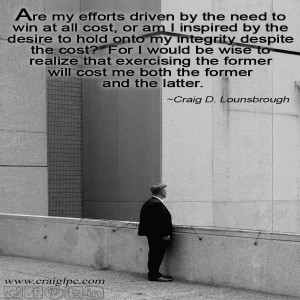
Sunday Jul 19, 2020
The Sacrifice of Truth for the Support of Our Agenda
Sunday Jul 19, 2020
Sunday Jul 19, 2020
How important is the truth? How critical is it to not only a healthy existence, but any existence at all? Is the truth negotiable or is the truth absolute? Is there such a thing as truth, or is the concept of truth the figment of imaginations that needed something steady and sturdy to get them through life?
We can ask many questions about the truth and we can pick the concept apart quiet handily. But history shows that the abandonment of truth creates space for the shifting contrivances of men. And those are a sure path to a terrible destruction. Truth is imperative. Yet, we will redefine the truth, reshape the truth, spin the truth, or abandon it altogether if it does not support whatever our agenda might be. If an agenda requires the modification or the elimination of the truth, that agenda is certain to destroy us at the very same time that we are building it.
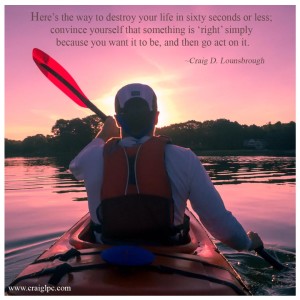
Saturday Jul 18, 2020
Facts, Logic and Truth - The Assumption
Saturday Jul 18, 2020
Saturday Jul 18, 2020
We assume way too much. In our culture today, there are many who assume that their agenda or point-of-view is correct. Sometimes their agendas or points-of-view go beyond being correct to being the single, solitary view, leaving no room for other opinions or perspectives. Many of these agendas are not necessarily based in facts, logic or truth, although it is claimed that they are. Often they are based on something less solid and less than completely enduring. Those that hold these various agendas or views often feel that they're solidly based in facts, logic and truth, but such a perspective is often questionable.
It seems that we need to stop and think a bit. We need to back away from what often appears to be blind adherence to whatever agenda is trending or whatever view grants us whatever permission we wish to be granted. We need to become thoughtful instead of thoughtless. We need to ask the larger questions, probe a bit deeper, and face the truth regarding what we're standing for or what we're standing on. And if we do that, maybe we can begin to embrace the truth embodied in this quote:
"It is my prayer that we would stop for a moment, turn off the voices that clamor for our allegiance, put aside the incessant rant of political agendas, and sit with ourselves for just a moment. And in the quiet of that moment, listen to your heart. For what you will hear is not all that far removed from the people that the ‘voices’ and ‘agendas’ claim to be your enemies."
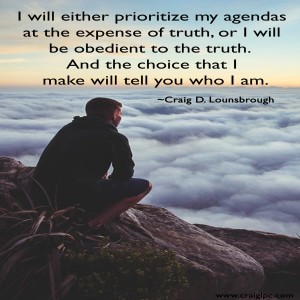
Sunday Jul 12, 2020
Taking the Time to be Honest About the Real Issues
Sunday Jul 12, 2020
Sunday Jul 12, 2020
We get caught up in the fervor and energy of some cause to the degree that the fervor and energy keeps us from determining what the real 'cause' of the cause is. We seldom sit back and ask what is really happening and what this is really all about. We believe that we are informed. We sense that we have an understanding for that which we've found ourselves caught up in. We say that we can defend the rationale of the cause and justify its platform. But can we?
We are not a thoughtful people. We are too often a rash people. We jump to conclusions. We believe something if it sounds appealing enough to believe. If the cause is championed by someone of status or fame, we conclude that the cause must be worthwhile. We fall for the hype, we consume the propaganda, and we run pell-mell into something that eventually runs over us. We need to become thoughtful people. For if we don't, we will end up in places that we never thought we would be.
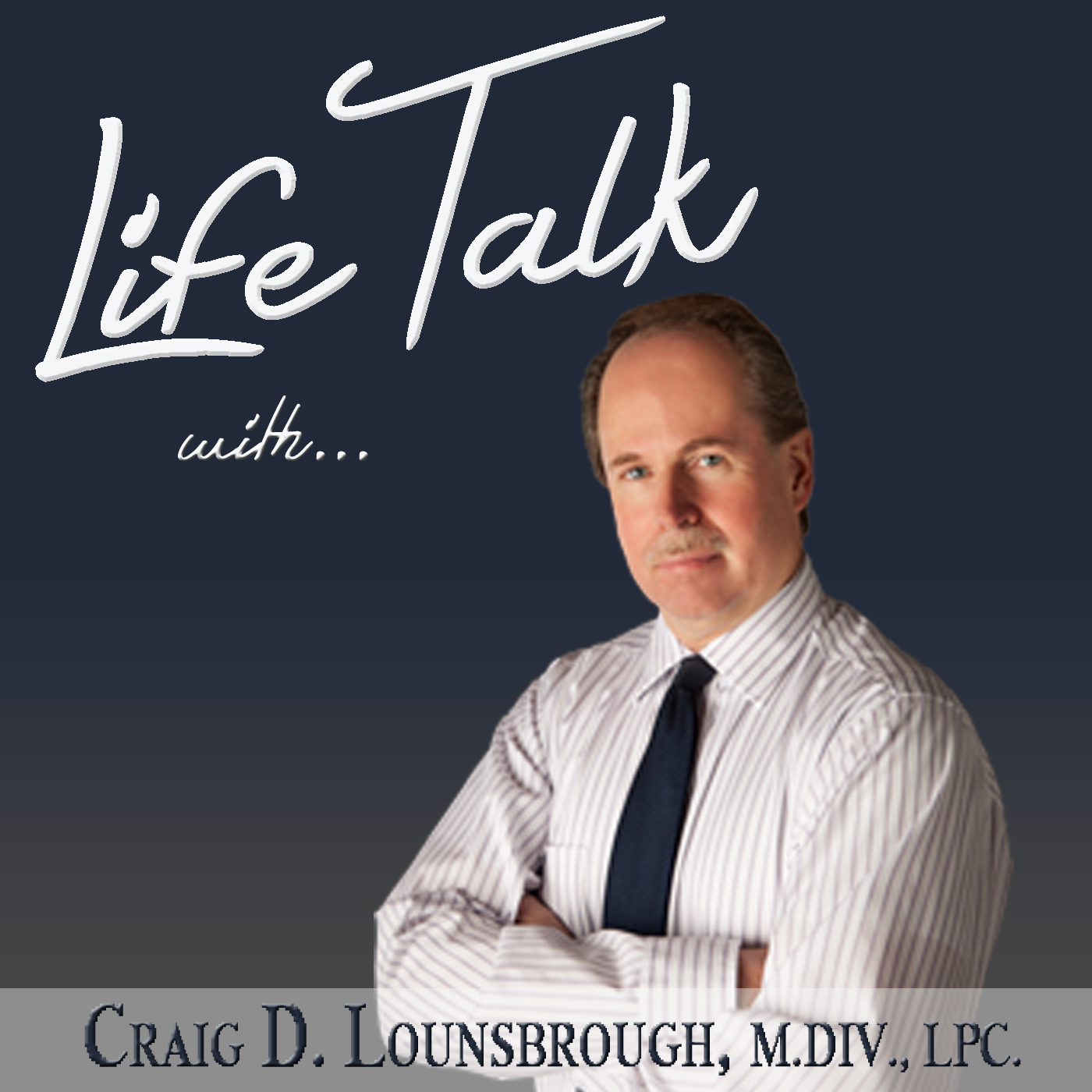
Wednesday Feb 22, 2017
Mining Memories - The Tool of Memory
Wednesday Feb 22, 2017
Wednesday Feb 22, 2017
So, what’s up with memories? We all have hoards of them, apparently endless reams of them that run a seemingly impossible gamut. Our memories encompass a boundless array of events. They’re expansive enough to fully embody the entire breadth of our emotions. They can be crystal clear and irreparably clean in their recollections. They can likewise be fuzzy, misty-like and somewhat fluid; creating dramatic and moving renderings of our past from the abstract, to the surreal, to something quite conventional. Memories preserve what would otherwise be lost and they create a means by which to redeem ourselves through the lessons learned and adjustments made because we can recall it all enough to learn.
Are memories just sights and sounds and moments and experiences filed somewhere in some methodical filing cabinet located in the gray fissures of our brains? Are memories about some internal hard drive that collects all this stuff for retrieval at some critical or possibly opportune time? Clearly, memories have a vitally important place in our lives, otherwise why would we have them in such wonderful and woeful abundance? The ability that we have to store information and experiences and feelings serves a multitude of indispensible purposes. In fact, it’s likely that we simply couldn’t live without the mind’s ability to remember and to recall. If we could, we would certainly be so much the poorer.
So it would appear that memories and the ability to recall things would appear to be incredibly, possibly indescribably important. The question is do we maximize this ability? Do we utilize this marvelous faculty as fully and as completely as we could or should? Have we ever even considered the magnitude of this seemingly fathomless resource or do we embrace it as little more than a tool to reminisce, or a curse that causes us to remember that which we’d much prefer to forget? Does memory become just the stuff of curious trivia or abundant fodder for colorful conversation? Or is it possible that this ability is far more valuable and more indescribably powerful than we even begin to realize. It’s possible that we don’t even come close to understanding what this amazing resource can do. Have we then forfeited a quite phenomenal resource? Because we do, we leave it languishing as some sort of all too common process that readily generates trivia and information, but is lacking for life-altering substance.
Memory Feeds Us
Amy Tan wrote, “Memory feeds imagination.” Memory is the vast and endless storehouse that ceaselessly feeds the richest parts of our deepest selves. It’s the copiously rich and prolific food-stuff from which the marvel of our core humanity is luxuriantly nurtured. Memory refuses to grant us permission to live solely in the one-dimensional realm of the present. Instead, it affords us the opportunity to live in the flourish of the present while simultaneously sipping fully on the many variant flavors of the past. Memory can seamlessly draw from both the past and the present, feeding more than sufficient creativity to live with flourish in the present and robustly create an entirely innovative future.
Memory Preserves
Memory is that thing that will not allow life to listlessly pass by and be forever lost in the passing-by. Life comes by once and if it were not somehow captured in the passing we would hold it only for the moment that we have it, and then it would be gone. We would be creatures of the moment only and we would be unable to take every moment and use those moments to build on every other moment. Memory allows for the amassing of a prolific array of building blocks rather than living with the flatness of holding onto the building block of the moment and having to forfeit it for the building block of the next moment and then the moment after that. Memory preserves.
Memory Maximizes the Storehouse of the Mind
The human mind is incomprehensibly vast. Such is the extent of the mind that we’re not even remotely capable of understanding what it can do. The only limitation that the mind has is the amount of information and experiences that’s put into it, not the capacity to store it. If we leave the mind empty, if we’re unable to seize each moment and store those moments in the mind’s vast storehouse for retrieval, the immense size of our minds simply wouldn’t matter. Why foolishly squander the resource of the mind by leaving its vast enclaves empty and barren? Why would we let empty space define us?
Memories Build on Themselves
Tyron Edwards wrote, ““Contemplation is to knowledge what digestion is to food - the way to get life out of it.” If we simply see memories as memories, as nice or not so nice places to walk around and reminisce we won’t mine the riches in them to enhance the riches in them. We walk through our memories for a whole lot of reasons, but typically not to submerge ourselves in them in order to let them build upon themselves. Typically our trip into them is much more something similar to a casual jaunt and a whole lot more superficial than serious; something like a stroll rather than an expedition, or a walk in the park verses parking ourselves in them. We miss the fact that memories build upon themselves in a prolific flowering that makes the sum total of the memories greater than their individual parts. Memories expand in their encounters with other memories.
Memories Mark History
Memories are the files that hold our histories. Histories grant us an undeniable and powerfully sustaining sense of purpose as they recite our paths. In reciting our paths we develop a sense that our lives were not the woven from the fabric of randomness, but that there is a rational progression that suggests something of meaning and intent. Memories map out a path taken that permits us to see a rhyme and reason to what appeared to be randomness. They allow us to see our lives in retrospect and in doing so to identify footprints that, from the distance afforded by memory, are anything but wandering. It’s here that we come to understand that our apparently meaningless and misdirected lives have something a whole lot more purposeful to them. In such a telling discovery, we can see that our lives had a rationale that suggests undeniable purpose.
Remembering Memories
You might be well advised to wade into the vast seas of your memories. Such a journey is potentially rich, certainly richer than meandering, or more likely, running away from them.
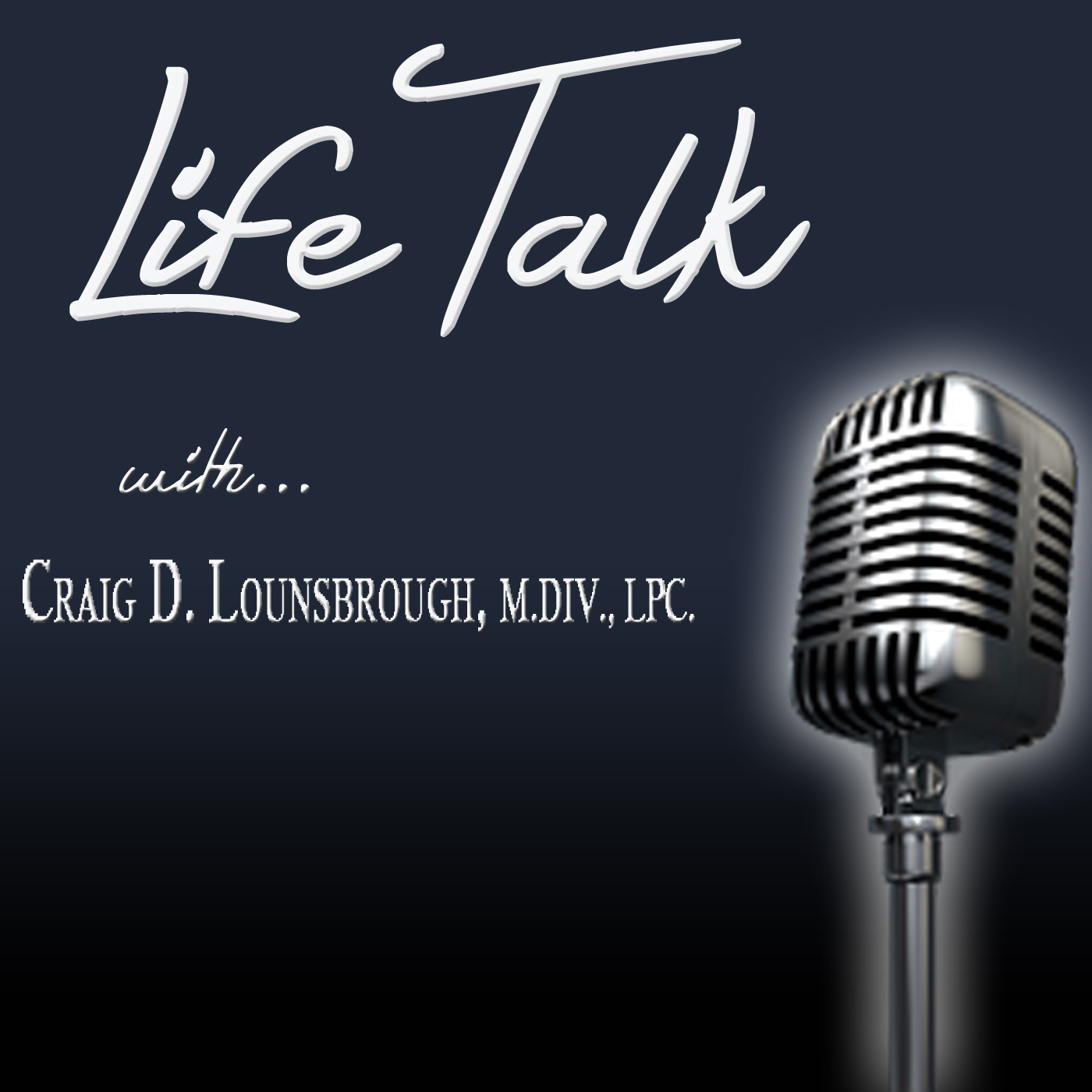
Sunday Oct 23, 2016
Communication - Some Bold Fundamentals
Sunday Oct 23, 2016
Sunday Oct 23, 2016
Communication is critical to our existence. Without it, we are isolated entities functioning without the ability to connect to anyone or anything around us. Without communication we lose relationships, we can't create community, and any ability to cooperate in building out a life and a larger culture simply does not exist. Yet, despite the incredible importance of communication, we don't focus on doing it well. Much of our communication is rather sloppy, slip-shod and less than thoughtful. With others often communicating in a similar fashion, our interactions deteriorate to the point that relationships are simply not possible, or they remain distant, or they become damaged beyond restoration. This brief video outlines several basic yet powerful communication skills that will begin the process of enhancing your communication.
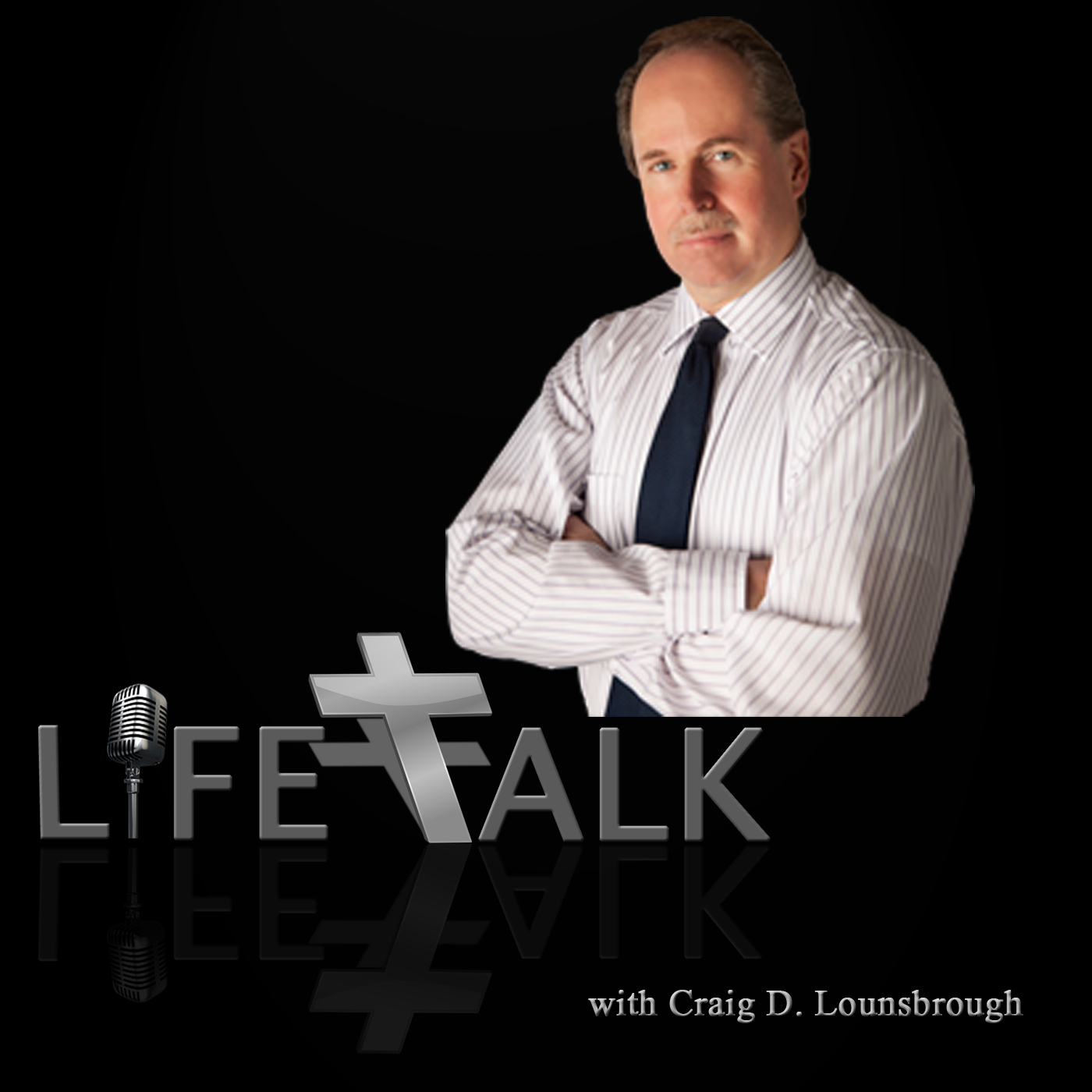
Sunday Oct 23, 2016
Cleaning Up Our Lives - Liberated Living
Sunday Oct 23, 2016
Sunday Oct 23, 2016
We live unnecessarily restricted lives. And in living those lives, we slowly suffocate in the things we have created and surrounded ourselves with. Living this way, we tend to place blame on circumstance, or we surrender to some misplaced feeling that life is just this way. We feel we don't have any power to change things and that our lives will simply move on in whatever way the winds of chance and culture blow. This brief podcasts suggests that much of the constraints and difficulties that we live with are a product of our own choices. It likewise highlights way to begin to change these in order to liberate the life we live.

Friday Oct 21, 2016
Assumptions - Agendas and Dangers
Friday Oct 21, 2016
Friday Oct 21, 2016
We all know what they say about "assuming." But assuming something is not just a random guess or a proverbial "shot in the dark." Rather, there are often agendas or biases that drive our assumptions. Assumptions are often far more than simple or naive guesses. Many times they are our attempts to push an agenda, or drive a situation in the direction we wish it to go. Often assumptions are really more the manner in which we broadcast a bias or manipulate a situation to the end that we desire. We can assume something to be something, so that in the assuming we actually make it what we want it to be. While subtle, such behaviors can be terribly destructive. This brief podcast outlines this interesting and thought-provoking dynamic so that we might have an enhanced awareness of it in our own lives, as well as the lives of others.

Saturday Aug 27, 2016
Loneliness - Communication that Starves Relationships
Saturday Aug 27, 2016
Saturday Aug 27, 2016
Life is a journey, and it’s not a solo one. But far more than that, along the journey and deep within the journey we find richness in relationships; those who know us intimately in a manner that can obliterate the terrifying sense of aloneness and wipe out crippling sense of meaninglessness. There’s an indefinable camaraderie in relational intimacy that lends a priceless and terribly rare sense of meaning to the journey, while infusing the journey with an often surprisingly exuberant strength as well. We need those who can share in the muddy rigors and turbulent turmoil of our journey in a manner that exponentially expands the meaning and the joy of the journey in ways we hadn’t even thought of at the outset of the journey. To journey alone is to journey to possible success. But to journey alone is to journey to success that is empty, pitifully vacant, likely isolating and therefore void of the sense of success despite the success itself.
Life is a journey, and it’s not a solo one. It’s designed for intimacy. So what’s real intimacy? Intimacy is that soul-mate kind of connection that has nothing to do with physical intimacy, but everything to do with the complexity of two human beings finding a fundamental interweaving of their corporate humanity that together renders them more than the sum of whomever or whatever they are apart. It’s the realization that I’m alone in this life as single human being whose experience is uniquely mine. Yet, I am alone in a world that affords me the opportunity of intimacy where I can take the unique experience that is mine and mine alone, and I can take the unique person that I am and connect all of that with another human being that results in the loss of none of that uniqueness whatsoever, and the gain of adding the life of another to mine, and mine to them.
Relationships enrich. They are a gift, an opportunity, the creation of a wildly imaginative God who wanted us to have everything that we are and enjoy the “everything” of another human being with the ability to have each enriched beyond measure and never diminished beyond question. Relationships expand us. But we can’t have relationships if we can’t communicate. If you take communication out of relationships, you have no relationship. Communication is essential, yet we’re losing the very ability to communicate.
Loneliness and Full In-Boxes
Loneliness is about relationships, or more fundamentally, the absence of relationships. The word “relationship” has become terribly ill-defined,or more specifically under-defined in a culture that’s consistently moving in wildly random directions at speeds that we can’t even begin to define, other than whatever speed it is it’s not fast enough.
Because of the speed that we’re relentlessly moving at, we communicate just enough to fill the informational void, get the data, plug it in, or meet some brief connective need of the moment so that we can move on to the next moment to make room for the moment that comes after that. George Bernard Shaw wrote, “The single biggest problem in communication is the illusion that it has taken place.” The acquisition of data and the obtaining of information convey something, but that’s not communication. It does however leave us with the abysmal illusion that communication took place, yet its illusion only. We’re left with a bunch of data,but an equally large sense of aloneness.
All the while we’re attempting to connect,build relationships and maintain relationships in the snippets, sound-bites and the precariously thin threads of texting, posting on walls, blogging, connecting with our “tweets,” IM’ing, being “linked-in” and so forth. We have electronic communication that fires messages at the speed of light to devices half a world away or the cell phones hanging on our hips.
Sure, these modes of communication provide for the transmission of data. But they are not sturdy enough, sufficiently deep enough, or possess the essence of the human touch adequately enough to connect with the heart and soul of another human being. Certainly, these types of communication have their place. But they fall terribly short and are woefully inadequate in connecting the beating heart and tender spirit of one human being to another. They are crudely incapable of weaving together the fabric of two complex souls so that they can fully share in the human journey in some sort of unified partnership.
Relationships are about the degree of connectivity that we have with others. Degree implies depth; that kind of connection that’s calibrated by ever-deepening degrees of intimacy that bonds us in a cement-like fashion with another. Sure, we can have a boatload of acquaintances and we can be social butterflies that flit and flirt around a never-ending array of people in some sort of completely shallow, flirtatious dance. We can play the social games and do the various gatherings and have everyone think that we’re so wonderful and so clever and so quick and so charming and so brilliant. But that’s an orchestrated show designed to impress. In the end everyone walks away entertained and having had a rollicking good time, but with nothing other than a perpetuated sense of emptiness, wondering are there any real people out there? What that kind of thing is not is an honest interaction stripped bare by vulnerability whose sole intent is to engender nothing but intimacy with another human being who feels as empty and lonely as we do.
Communication as Critical
Communication is bridge by which two lives intersect. It’s a communion of souls, a bathing in the heart of another, a melding of two people into one while each individual stays uniquely themselves. This is not about data transmission or sharp sound-bites. It’s not about how many gigabytes we’ve used or what we used them for. Communication is the use of words, touch, body language, eye contact,actions, behaviors and so much more that are the stuff of the human soul and not transmittable by any electronic device.
Phyllis McGinley wrote, “Sticks and stones are hard on bones, aimed with angry art, words can sting like anything,but silence breaks the heart.” We can say a lot of things and make a lot of noise, but how many times is what we’re saying really nothing more than silence? How many times do we think we’re communicating and all we’re doing is conveying information? Your relationship will not survive on the conveyance of information, despite how adept you might be at doing it. Your relationship can only survive on communication. So you might be well-advised to ask if you’re conveying information and the relational silence that creates, or you’re communicating. There’s a world of difference.
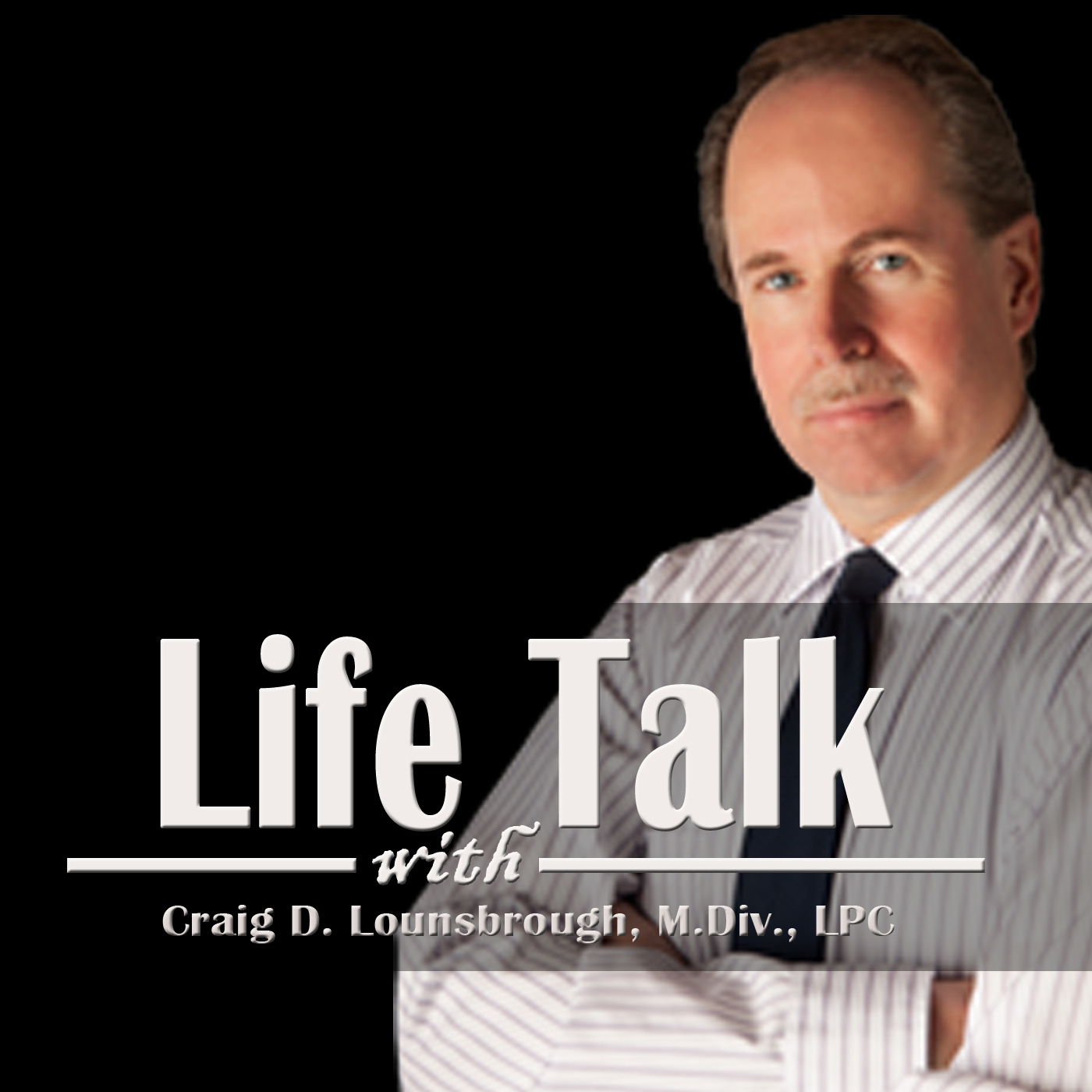
Saturday Aug 13, 2016
Loneliness - Agendas That Starve Relationships
Saturday Aug 13, 2016
Saturday Aug 13, 2016
We live our lives based on agendas. Most of our agendas are pretty subdued so that we don’t often recognize them or really comprehend exactly how they affect our behaviors and our choices. On the other hand, some of our agendas are glaring, screaming into our lives in a manner that every action and choice is methodically dictated by them.
Agendas have a methodical way of commandeering our thinking. They can create within us an ever-increasing sense that if we don’t adhere to them we’re going to be in big trouble. While agendas may innocently start out as goals or frameworks that are designed to productively channel various aspects of our lives, they often grow into monolithic proportions. Sometimes our agendas become tyrannical gods, legalistic rules, incessantly demanding expectations or rock-hard boundaries that are held as imperative. We then become our agendas and we subsequently project our agendas into everything we touch.
Because of the intimacy and vulnerability of relationships, agendas tend to rear their ugly heads with quite a bit of force. Most relationships don’t start out that way, but as they evolve so does the implementation and integration of our agendas. In time, our agendas become the things that define the relationship rather than the people in the relationship defining the relationship. There is a dictatorial sense to it all; a suffocating and strangling kind of orientation where people are made to fit an agenda. The relationship itself is thoroughly stifled and ends up pooling in the rank waters of relational stagnation. In time, the relationship can become intolerable and is therefore vacated.
There are a number of agendas that we forcefully cram into relationships, or cram relationships in to. If there’s one thing that’s for certain,certain agendas are certain to kill a relationship. In doing an agenda inventory, we may wish to look for some of these:
The Agenda of Power and Leverage
Typically we build relationships to build out our goals. Relationships have often become little more than a resource with the ultimate objective of the relationship to achieve whatever goal we have in mind. Relationships are often seen as a tool, some sort of asset, something that gives us power or leverage. Sometimes we see it as the thing that supplies us strength or motivation when we’re expended, or that resource undergirds us when our energies flag and our fears flare. It’s that thing that we can fall back on when we need a boost, or turn to when our emotional legs buckle, or something that lends some degree of accountability that causes us to “buck up” when we burning out. Whatever we use it for and wherever it fits, it becomes something of a resource rather than relationship.
To view a relationship as something to be used is to insure its death. When a relationship dies, a bit of us dies with it. In that sense, using a relationship for our advantage is clearly using it for our disadvantage, not to mention that the other person doesn’t fare all that well either. Relationships need to be fed and nurtured with ample space to allow them to flourish. Power and leverage too often becomes punitive and lethal.
The Agenda of “Because We’re Supposed To”
Of course we’re supposed to have friends. And because we’re supposed to have them we’d better go out and round up a few. After all, we wouldn’t want to look like social misfits, or undesirables, or people who live out on the fringe of society and have people look at us kind of sideways. So we have to claim knowledge of somebody, or that we hung out with so and so, or that we’ve have either enough invitations or maybe more than enough. Sometimes relationships are what we’re supposed to have in order to look the part, and so we go out and we collect them. It’s something like playing “dress up” where we put on people like some kind of finery and strut about with an air of importance and social finesse. It’s all about the “look at me” scenario,“ain’t I something?”
People are not clothing nor are they some sort of fashion accessory. They’re not points to be counted as we tally up our social scoreboard. They’re not steps on some sort of social ladder, nor are they an aphrodisiac for our insecurities. This agenda kills relationships.
The Agenda of Working Out My Issues
We all have issues. Sometimes we view relationships as the place where we can work out our issues. There’s some sort of belief that the person we’re in the relationship with will have some sort of ability to help us navigate our issues. It could be that they’re close to us, that we see them as committed to us, that we can be vulnerable with them in ways we can’t with others, or that relationships are all about helping everyone become the best that they can be. Relationships are sometimes seen as having this emotionally magical thing going on that’s got all the mystical ingredients in it. All we’ve got to do is lightly sprinkle this relational fairy dust on us long enough and abracadabra, we’re good. Whatever our mindset might be, relationships are sometimes seen as the place to heal of our issues. While healing can certainly take place, inherently a relationship does not possess everything that we need to heal everything in our lives.
The Agenda of Revenge
Sometimes we’re in a relationship to get back at someone else. The relationship that we’re in is about revenge, about throwing something in someone’s face that hurt us previously. At times the relationship we’re engaged in has little or nothing to do with the person that we’re in the relationship with. The relationship itself is in actuality targeting someone entirely outside the relationship. It’s about retribution fora perceived hurt that was inflicted or a harm done. Sometimes it’s purely about manipulation as we attempt to press our agendas with someone else through the relationship that we’re in. Other times it’s our way to break with another person or an entire social grouping by aligning ourselves with somebody who’s completely removed from them. Revenge wounds everybody, every time.
What’s Your Agenda?
Maybe you never thought about your agendas. They become such a natural part of our thinking we don’t even see them as agendas anymore. But they’re agendas and they’ll have the toxic impact that so many agendas have in relationships. Think about yours. Think about their legitimacy. Think about the agenda of your agendas. Think about where they come from. And most importantly, ask if you really want to keep them.
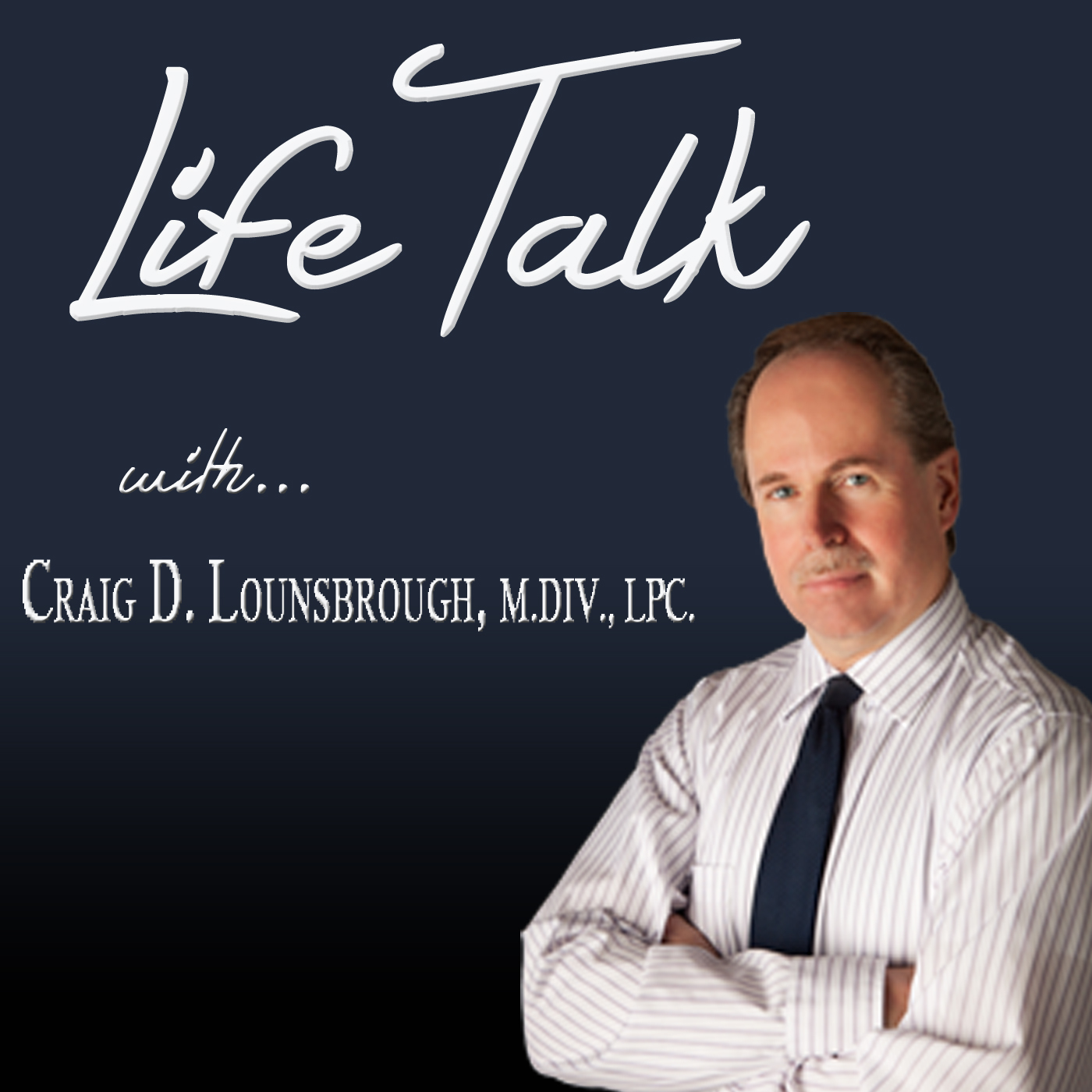
Thursday Mar 31, 2016
Reality - The Extent of Your Reach
Thursday Mar 31, 2016
Thursday Mar 31, 2016
Albert Einstein said that “ an illusion, albeit a very persistent one.” Yet, we see reality as anything but illusion. Wikipedia states that in philosophy, “reality” is defined as “the state of things as they actually exist, rather than as they may appear or might be imagined.” When we throw around the word “reality,” we assume it to mean all that’s really real. We see “reality” as something where all the fake and fraudulent has been entirely stripped away leaving nothing but that which is true and genuine. The word “reality” suggests something that’s completely grounded, that’s entirely true and that’s totally accurate. We sense it as something that’s solidly rock bottom and unarguably the end of the story. “Reality” for most of us is what life was like before we added all the junk to it that we’ve added. It’s the uncontaminated raw essence of existence. In other words, it’s the untainted, untouched and unalterable truth.
Shopping for Our Realities
Yet, out of our indomitable need to be masters of our own fates and the captains of our own ships, we prefer to shape our own realities. It’s odd that we think we have the ability to wield power that we really don’t possess at all. We don’t see ourselves as wonderfully privileged to be a part of this amazing journey that’s been laid out before us. Rather, we see ourselves as being people who have the inalienable right and uncontested license to design,fashion and form this journey from the ground up. We claim life solely as our private enterprise and we cast it entirely in our design. Indeed, we have a strange way of taking liberty with things that we really can’t take liberty with. We can be an arrogant bunch at times,thinking we have the ability or the right to manage things that we simply can’t.
In some respects it might be likened to some sort of god-complex or maybe the classic short-man syndrome. Whatever it is, we think we’re privileged enough or powerful enough to control that which we can’t. One of the realities of humanity is our sense that our right to independence extends to our right to craft our lives in whatever manner we choose to craft them. That then creates a mentality that a pre-existent reality which is universal in nature and scope is an entirely unfair and unjust hindrance. The realities that we create tell us that a universal reality can’t be a reality because of the manner in which it impedes us. Therefore, if we massage our minds enough to believe that a universal reality does not exist we must create our own reality.
It’s no news to anyone that there are many realities out there for the choosing. That’s what tends to make all of this a bit confusing. However, it does afford us the opportunity to embrace the reality of our choosing. And if there’s not one out there that really appeals to us, we can go right ahead and custom or semi-custom design our own.
Our Own Custom Designs
Our “reality” is often what we’ve constructed. We build out our lives and we fashion our existence, sometimes carrying those tasks out in very meticulous ways, and at other times doing so in rather abrupt and less than thoughtful ways. Sometimes we create our realities based on well laid out plans, and at other times we piece-meal things as we fly by the proverbial “seat of our pants.” Oftentimes we exercise great care because we care, and at other times we’re careless because we could care less. However and in whatever way we do it, what we construct stands before us looking strikingly real and credibly genuine at times. We can perform a down-right convincing job of rigorously constructing an intellectual,or emotional, or spiritual, or relational behemoth that looks breathtakingly lifelike. The pressing question becomes, does the “reality”we’ve created reflect the larger realities around us? And in creating our own “reality,” have we forfeited “reality?”
Our Semi-Custom Designs
The world around us seems like a grandly expansive buffet chock full of cheap imitations. It’s interesting that what we create is always an imitation of something else. Whether in whole or in part, the things that we fashion in life always borrow from something else. That suggests that there must be something original, some creative point of departure that emerged from nothing but itself. Everything after that is, to one degree or another, a copy.
So we shop this massive buffet of cheap imitations and we pick a bit of this and a bit of that. Sometimes we take things in their entirety,or we whack off or carve out the parts that appeal to us. Whatever it is that we walk out with we craft it into our realities. Therefore, our realities are borrowed and integrated into some sort of semi-custom design. What we borrow is what appeals. So our intent is to create a reality that’s appealing, that’s nice, and that’s comfy and cozy. Our semi-custom realities can be custom made to fit our personal agendas, our biases, our prejudices, our fears, and our emotional baggage. They can be fashioned to lend credence to our views, give us permission to avoid our pain, allow us to live in blissful ignorance, and rubber stamp whatever we want rubber stamped.
Borrowing
Then there’s the ability to just borrow our “reality” wholesale. It’s the “I’ll take one of those” mentalities where we simply grab whatever “reality” is closest or whatever “reality” is the easiest and run with it. In doing this we forfeit any ability to engage life as unique creations and become whatever someone else has designed. Sometimes we do this out of a compelling argument that convinces us that someone’s design of “reality” is the real deal. Whatever the motivation, we borrow a “reality” and we park ourselves in it and on it. Typically we never really question or scrutinize the “reality” of the “reality” simply because borrowing is a whole lot easier to do. So we live in a borrowed world on borrowed time.
Real“Reality”
Anything that we assume to do will obviously be limited by our limitations which are pretty limited. That means that if our “reality” is limited to what we create, we’ll end up living in a pretty tiny world that’s going to be thinly populated, pretty sparse, quite dreary and just plain flat. On our own we cannot begin to hope to exercise a degree of intellectual acumen, or emotional depth, or spiritual magnitude that could rise to even touch the slightest hem of the realities of the world we live in. We build our finite realities instead of exploring an unrestricted infinite reality. We then spin little lives in dark caverns that we’ve come believe are filled with irrepressible light; and we languish.
In reality, the question of “reality”has been bounced around throughout human history. It would appear that a hallmark of “reality”is that we didn’t create it. Second,“reality” is not the product of innovation or alteration. Third, if something’s hard and demanding it’s probably closer to reality than the easy stuff. Fourth, embracing reality rather than shaping it or borrowing it is going to give us the richest and fullest life. And finally, reality is expansive enough to give us a life-long journey of endless horizons and ceaseless discovery. The “reality” is that you might want to really think about it.

Friday Mar 11, 2016
The Untimely - When It All Happens When It Shouldn't
Friday Mar 11, 2016
Friday Mar 11, 2016
Someone once uttered the timeless saying that timing is everything. There’s something about things happening in a certain order in a certain time that makes it all fit in a certain way. We sense a natural and correct progression that, if followed, leads to success or happiness or fulfillment or whatever it is that we’re chasing. The whole element of timing seems critical. The more important something is, the greater the issue of timing. Timing can be so critical that at times we set out to minutely orchestrate the pieces and parts of whatever we’re doing so that everything is perfectly cinched and tightly in synch.
Yet sometimes it all falls apart. I mean it disintegrates; something like Murphy’s Law times three or four. Sometimes it’s not just a matter of something being a bit out of step,or not lining up quite right. It’s not about tweaking something or nudging it back into whatever place it was supposed to be. Sometimes the wheels fall off the thing, which then causes everything else to fall off as well. We end up with the classic train wreck where we met an uphill train on a downhill grade. More than that however, there’s absolutely no rhyme or reason for the train wreck. It simply didn’t need to be. It was all way beyond any odds or all statistics. Whatever happened, it was a cruelly extenuated string of dumb luck.
Sometimes it just all falls apart . .. all of it. We’re left standing dumbfounded, mired in the confusion of it all and running our minds down a thousand roads of the classic “what could have gone wrong” question. Sure, we’ll likely find some things that weren’t too well thought out or strategies that were a bit ill-conceived. We might unearth some rationales that now, in hindsight, aren’t quite as rational as we originally thought them to be. We even might stumble over some misdirected motivations or less than ethical agendas that were part of the whole thing. The way we pasted it all together may have not been entirely seamless and the stuff that we pasted together in the first place might have been less of a fit than we have originally thought. We may have even chosen to force fit some stuff that in the end really didn’t mesh a whole lot. Yeah, there are probably some quirks and a few flaws.
Yet, there are times when these quirks and flaws and other dynamics really represent only a small portion of the whole. We dig and scratch and scrape only to uncover a sparse handful of these dynamics. There are times when the sum total of them is far too small and far too innocuous to really explain why the whole thing fell apart. They don’t add up sufficiently to explain the mess that lays scattered, derelict and broken at our feet.
In the end we’re left with bushels of questions that rot for lack of answers. Things just didn’t line up. There’s no sustaining or compelling rationale other than it didn’t happen when and how it should have happened. If the timing had been good, it all would have all been good. But the timing was not and now everything lays wrecked and ravaged.
Sometimes the losses are marginal. At other times they’re catastrophic. Sometimes we can just pickup our toys, brush them off, head on home and play another day. Sometimes there’s nothing left to pick up other than the charred ash of incinerated dreams and the unidentifiable pieces of years’ worth of hope and sacrificial toil. Sometimes it’s no big deal, and at other times the whole thing is a deal-breaker.
How Does It Work?
Maybe we should expand our thinking a bit. Maybe we should ask the question “is loss sometimes the best thing that can happen?” That’s a bitter and biting pill to swallow, on top of the fact that it’s a completely unsavory to even entertain in the first place. It suggests however that things in life don’t line up because maybe they’re not supposed to. Maybe what we were doing was in reality a whole lot more wrong than it was right. Maybe it would have been a whole lot more damaging than it would have been constructive. Maybe it would have been the thing that would have robbed us totally blind rather than enriching us beyond measure. Maybe it would have become the monster rather than the malevolent benefactor. Maybe the fact that wheels fell off of it and it derailed was one of the biggest blessings we’ve experienced in a very long time.
At the beginning, when we’ve started to head off into most of our endeavors we don’t have the perspective of what this will look like on the other end. All we see is what we have in front of us, how it all goes together, and then based on that how we guess it will all come out in the wash. We can take a shot at speculating outcomes and be pretty convinced that our conceptualization will indeed be what it will look like on the other side. We can do the math and project the numbers and point to what it should all add up to. We can play with our mental bell-curves and crunch the emotional numbers to calculate an outcome. But sometimes things don’t add up according to our calculations, despite how tedious they might be. Sometimes our best projections because our most haunting nightmares.
We’re typically not open to this kind of thinking because we’re angry about the loss and we’re licking our wounds because we feel jipped. We’re not in the mindset to think about the fact that maybe it blew up so that we wouldn’t. All we tend to focus on is the feeling that we’ve been victimized, ripped off, short-changed and short-sheeted. The reality is that sometimes we are. But quite often this is life’s way of putting on the brakes.
Is It Untimely?
Are our circumstances untimely, or very timely? Do our situations appear untimely only because we’re seeing what didn’t happen, but we refuse to see the things that are happening right in the middle of what didn’t happen? Are we so myopic that we can’t see beyond the train wreck to the fact that the wreck stopped the train and that that might have been the very thing that compassionately saved us, or maybe graciously redirected us? To our chagrin, the exact time and place when we think something shouldn’t have happened may very well bethe exact time and place when it absolutely should happened.
Rose Kennedy said that “Life isn't a matter of milestones but of moments.” It’s not about what we achieve, but what we learn on the way to the achievement. We glue our eyes to the goal and we ignore the journey on the way there. And that journey will often involve our world’s falling apart despite heroic efforts to keep them together. Yet, our world’s falling apart have within the event great lessons that we would be well advised to embrace. Moments are not always nice, but they can be rich. So, when your world falls apart in the untimeliness of living, look at the wreckage. There’s something rich there for you.

Friday Feb 12, 2016
Love - What Is It?
Friday Feb 12, 2016
Friday Feb 12, 2016
What’s love? That question is probably a topic to be debated. We’ve got a million different definitions for this thing that we call “love.” It seems that we’re in love with the idea of“love,” but we’re not all that caught up in the sacrifices that love will demand of us. And so, we craft and we carve and we contort love to be something that we love, but something that we don’t love so much that it demands much of us. None of that is really love. And so, what is love?
It’s the stuff of endless novels, myths and legends. Entire movies and plays are driven from the first line to the last by this single theme. We live for it, fight for it, plead for it, cheat for it and die for it. We even go so far as to fabricate cheap and limp imitations of love to at least get a small piece of something that looks like love. But none of that is really love.
We step into the quandary of the greeting card aisle and we’re faced with an endless variety of cards that extol love. We’ve got a whole holiday dedicated to it. Our tombstones are cut with inscriptions that talk about how we loved or were loved. We’re quick to say that we love certain foods or certain people or certain hobbies or certain colors. Sometimes we speak the word“love” with a deep passion we don’t even understand. Other times we throw it around to describe something we tend to like or feel good about. But what is it?
Love is Powerful
One thing’s for sure, love is powerful. We all want it, or in reality we all need it. It’s inborn in us as some sort of fundamental human need that’s as important as water, food and oxygen. You can’t grab it. You can’t box it. It doesn’t ship well and refrigeration doesn’t preserve it. Love doesn’t allow you to control it or catch it or herd it. We didn’t invent it and all of our efforts to dissect it end up leaving us as mystified as ever. There are a million different stanzas and an equally large number of musical scores that bespeak of our love for “love,” but it still evades us. It’s abundantly clear that we’ve in love with “love.” But what in the world is it?
Feeling or Decision?
Is love a feeling or a decision? We can say with some certainty that love is a deep human emotion where the most fundamental of our passions are stirred. There’s something so powerful about love that people have risen to unbelievable heights and achieved phenomenal things because of love. On the other side of that, people have also plunged to frightening lows that some individuals never crawl out of. Love is a powerful emotion that makes us uniquely human and gives us the ability to do things we never imagined we could do. But, is love a feeling or a decision?
What if Love is Both?
Indeed,true love is a profound emotion. However, it must move beyond an emotion simply because love without a decision that throws love into action is love that is in the very process of dying. Love without a decision never moves love outside of itself. Love without a decision never touches anyone but us. Love without a decision will utterly rob us of the very miracles that only love can pull off. Love without a decision, or a decision without love will both fail miserably.
And so we choose. We choose when it hurts to choose. We choose when the choice may cost us dearly. We choose when not choosing seems the better choice. We choose when everyone around us deems such a choice as absolutely lunacy because they’ve forgotten what love is. We choose because love will never be unleashed unless we make a decision to unleash it.
Love as the Expression of True Living
There’s one final thing about real love that makes it unique. In fact, it might be the most important thing. Living and sacrificing in love gives life an authentic richness far superior to a life that’s invested in just taking, or trying to give based on some cost/benefit analysis. Love is first and foremost about how it helps someone else. But in sacrificing for someone else something powerful returns to us. Love kind of splashes back on us. It will eventually come full circle possessing more than what we’d sent it out with. That’s enriching in ways that are truly great. Make a decision to love and it will return. Make a choice and you will be loved. Choose to love and you’ll end up falling in love with loving.
